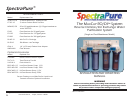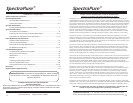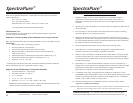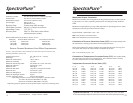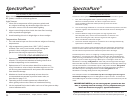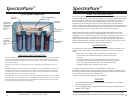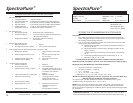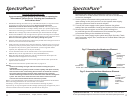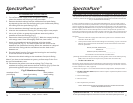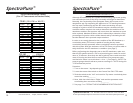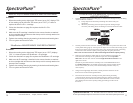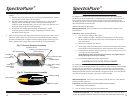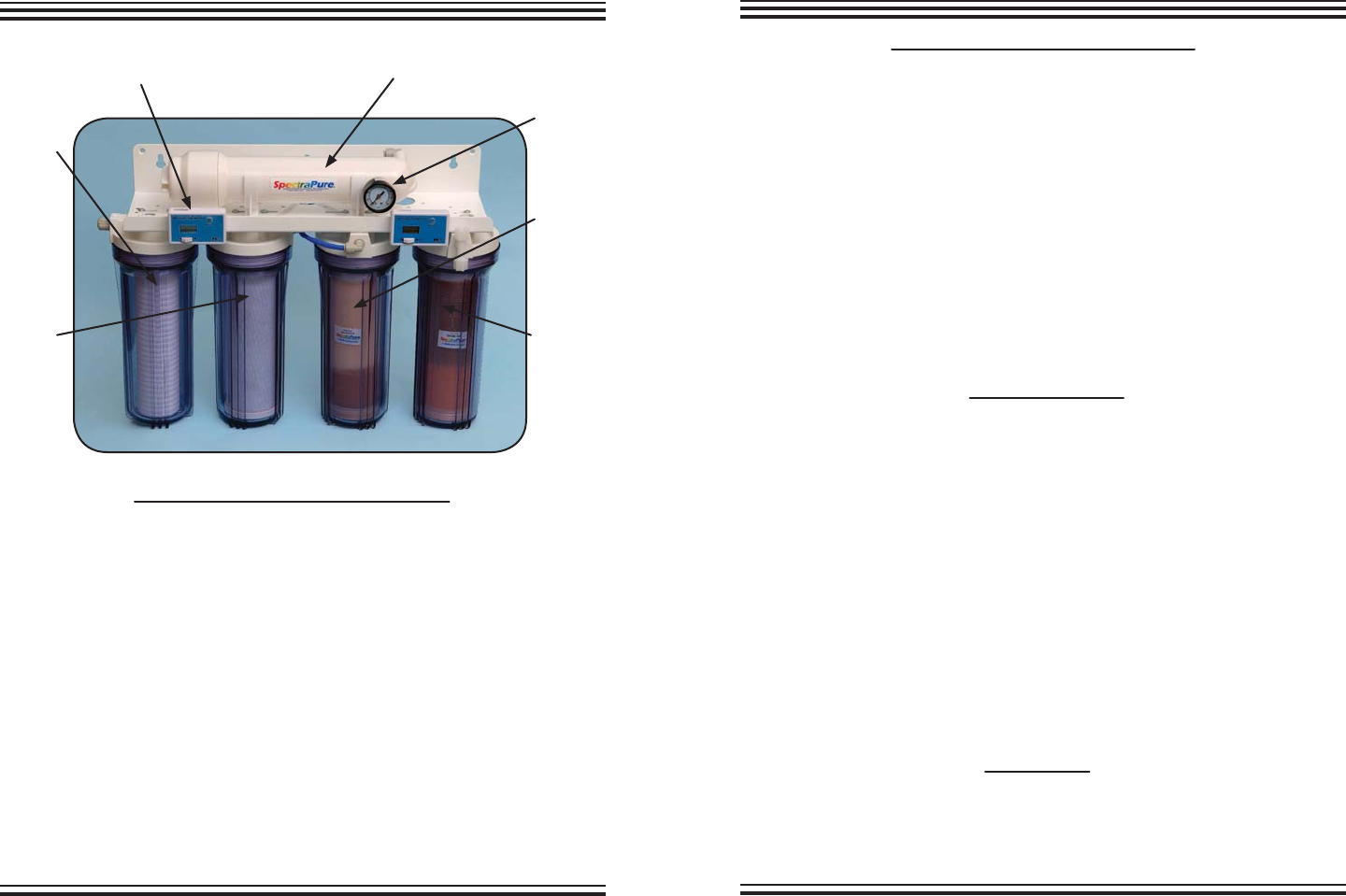
SpectraPure
SpectraPure®Inc.
480.894.5437 Call us toll-free 1.800.685.2783
2167 East Fifth St, Tempe, Arizona 85281
®
6
METERING AND DIAGNOSITCS
This SpectraPure purification system has been fully equipped with sufficient instrumentation
to make monitoring and troubleshooting an easy process. The provided pressure gauge is
used to determine the tap water pressure and to evaluate the condition of the sediment
and carbon prefilters.
(The pressure will drop as the pre-filters become clogged by dirt [turbidity] from the tap
water).
The digital TDS meter (left side) will provide a reliable means of evaluating the efficiency of
the RO membrane. This meter will indicate the tap water conductivity and the RO water
conductivity. The difference between the two meter readings will be used to calculate the
percentage of rejection of the (TFC) RO membrane.
The Digital TDS meter (right side) will be used to determine the condition of the two stages
of the DI system. As the reading on the meter begin to increase, the operator will be alerted
to the possibility that the DI system may have deteriorated past the exhaustion point and
that the DI cartridges may need to be replaced.
Fig. A: System Components
TFC RO Membrane
(MEM-150)
.5 micron
MicroTec™
Sediment
Pre-Filter
(SF-MT-.5-
10)
.5 micron
Carbon
Block Pre-
Filter (CF-.5-
10)
Pressure
Guage
(2) TDS
Monitors
DI
Cartridge #1
DI-MC-10
DI
Cartridge #2
DI-SB-10
SpectraPure®Inc
. Fax 480.894.6109 Fax us toll-free 1.877.527.7873
E-mail: spectra@spectrapure.com Visit us on the web www.spectrapure.com
19
SpectraPure
®
USING THE PRESSURE GAUGE
The pressure gauge is used to monitor the condition of the Sediment and Carbon
Pre-Filters. With the Sediment and Carbon filters removed, the gauge will indicate
the “actual” input water tap water pressure. When the prefilters are “new”, the
pressure shown on the gauge will be slightly less than the actual tap water
pressure and as the filters age the pressure will drop due to the dirt that will
collect in the prefilters. When the pressure on the gauge drops below 40-PSI or as
the filters collect particulates and the pressure drop is greater than 15% to 20% of
the normal water pressure, the pre-filters are in need of replacement.
NOTE: When the pressure on the pressure gauge drops below the normal
readings; do not “assume” that the sediment filter is the only cause. In some
geographical areas where the input water contains a high percentage of very
small micron particulates, the carbon filter may become clogged before the
sediment filter. (The filters may look “new” but still cause the water pressure to
drop). Do not judge the condition of the prefilters by their color, always use the
pressure gauge to determine the condition of the prefilters.
MAINTENANCE
The maintenance and trouble-shooting procedures have been made easy and
effective with a combination of the Pressure gauge and two dual Inline TDS
meters.
- When there is a pressure drop of 15% of your normal house
pressure that is an indication that your pre-filters need to be
replaced.
- The TDS monitors will let you know when the TDS level rises. All
our membranes have a 98% rejection. When the TDS level starts
to rise the % rejection will decrease. You should replace the
membrane before the % rejection gets to 90%.
It is highly recommended that one set of Sediment and Carbon
replacement filters should be on hand and ready for installation as soon as the
fist monitor indicates that a cartridge change or replacement is required. We do
not recommend that you have a replacement
membrane and DI because they do have a shelf life.
STORAGE
1. It is recommended that you store your RO System in a cool place
when not being used.
2. Your RO System must be protected from freezing or temperatures
above 100° F (38°C).



